Changes to PBS payment arrangements for certain medicines
Page last updated: 3 May 2018
The Australian Government is implementing changes to payment administration arrangements for high cost Pharmaceutical Benefits Scheme (PBS) listed medicines to ensure continued patient access through community pharmacy and the broader medicines supply chain.
The changes will:
- Increase consumers’ access to high-cost medicines through community pharmacy;
- Continue to support a viable community pharmacy network by addressing cash flow concerns raised by pharmacists and wholesalers; and
- Address the financial risks associated with the payment of large rebates from medicines companies to Government for some high cost medicines.
The changes address issues raised by pharmacists and other stakeholders over recent years and during the independent Review of Pharmacy Remuneration and Regulation (the Review).
A key concern raised during the Review is that more than one in five, or 22 per cent, of community pharmacists are unable to stock high cost medicines because of the effect on their cash flow, meaning that some patients are unable to get the medicines they need, when they need them. One of the key aims of Australia’s National Medicines Policy is to ensure timely and affordable access to medicines.
The Department of Health appreciates input from all within the medicines supply chain in considering these changes that ensure consumers get timely access to essential high cost medicines in the future, with existing co-payment arrangements maintained.
The Department has been consulting widely on these changes since late 2017, and will continue to consult with the medicines supply chain and consumers as the technical details of the new payment administration arrangements, and transition arrangements are finalised over coming months in readiness for implementation in 2019.
A trial of the new arrangements will be implemented in consultation and collaboration with the whole medicines supply chain for selected medicines, on a case by case basis, from 1 July 2019.
New medicines will continue to be assessed for clinical and cost-effectiveness by the independent Pharmaceutical Benefits Advisory Committee (PBAC) under existing policy settings and legislative arrangements.
Medicines companies will be remunerated the agreed effective price for their medicines.
Remuneration for wholesalers and pharmacies for stocking and dispensing the medicines involved will not change – PBS fees and mark-ups will continue to be calculated based on the listed price of the medicine.
There will be no reduction in the Commonwealth’s overall investment in the PBS and the Government will continue to list every medicine recommended by the PBAC.
Feedback from consultations will also be incorporated into an upcoming approach to market for the Community Services Obligation wholesaler arrangements, which support and enable the essential supply chain mechanisms underpinning the National Medicines Policy.
The Department intends to convene a series of technical working groups to continue to develop and finalise details on the new arrangements to inform necessary changes to IT systems and process. It is expected that these working groups will meet in mid-2018 with a view to developing approaches that work for the entire pharmacy sector.
The Department would like to take this opportunity to gratefully acknowledge the continued assistance and advice of organisations and individuals in developing the new arrangements.




